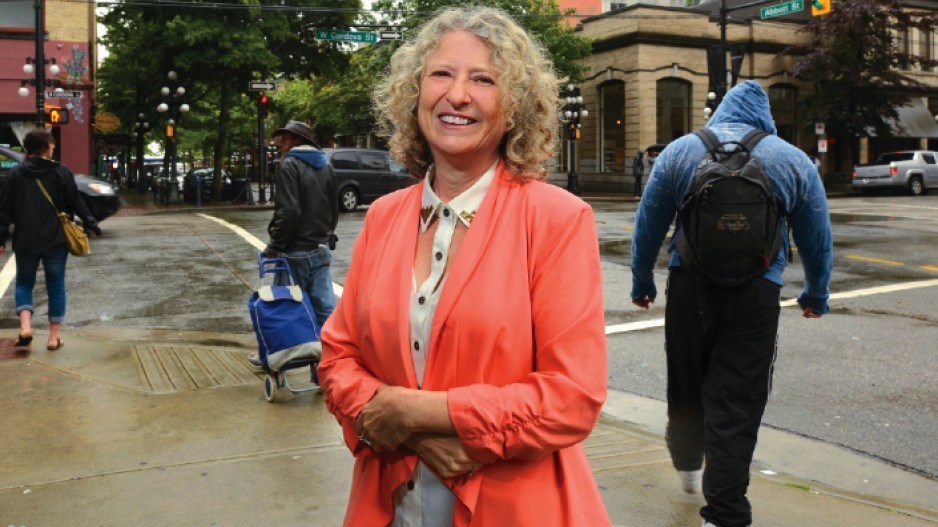A Vancouver developer with years of experience working on projects in the Downtown Eastside (DTES) says he’s starting to see the anti-gentrification pendulum swing the other way as more moderate community voices are being heard above the prevailing confrontational rhetoric.
“Development in the area is inevitable,” said Jon Stovell, president of Reliance Properties. “[I’d like to encourage] having some of the money from those developments help facilitate low-income housing and training and employment, instead of trying to circle the wagons around the neighbourhood.”
Activists have grabbed headlines in recent months, with an ongoing protest in front of upscale restaurant Pidgin, located across from Pigeon Park, and a May 1 street march in which protesters displayed a “Set Fire to the Condos” banner.
A slew of new condo and renovation projects are underway in the area (see “Anti-gentrification protests fail to dampen Downtown Eastside investment initiatives” – BIV issue 1224; April 9-15).
Stovell, who has been participating in the City of Vancouver-led local area planning process over the past year, said the meetings have been a far cry from his experience working on the Woodward’s building, which was able to gain community support.
“It’s a very aggressive group of people, and it’s made it very difficult for people with other opinions to speak out,” said Stovell of the current planning process.
But he’s been heartened by a loose coalition of social enterprise businesses, known as the Inner City Economic Strategy, that have been working quietly behind the scenes with developers and City of Vancouver staff. The group is made up of Embers, Potluck Society and Mission Possible, along with the Hastings Crossing Business Improvement Association and the Vancouver Board of Trade (VBOT).
“Our partners are the developers,” said Marcia Nozik, CEO of Embers, a construction temp agency and renovation business. “We don’t think development is a bad word, we don’t think business is a bad word.”
Two weeks ago, Nozik and representatives from Mission Possible and the Potluck Society presented to developers and other business people at the VBOT. It followed earlier meetings with city manager Penny Ballem and the Urban Development Institute.
Following the meeting with developers, Nozik said, “We’re looking at some way, not just with a handshake but with something written down, to have true partnership with the developers and the neighbourhood.”
And the city? “We’re trying to see if there was some way we could work with the city, where the city could help to leverage some of the benefits from development … Could they negotiate that 10% of the workers need to be from that area, or something like that?”
Rising rents and development pressures are going to continue to be a problem in the DTES, not to mention the rest of the city, said Brian Postlewait, the executive director of Mission Possible.
“From our organization’s standpoint, we have to look at all the different people and possibilities to partner to fulfil our vision … to give people in Vancouver’s Downtown Eastside opportunities to enhance their lives.”
The Downtown Eastside local area planning process is set to wind down at the end of this year and then go before Vancouver city council.




